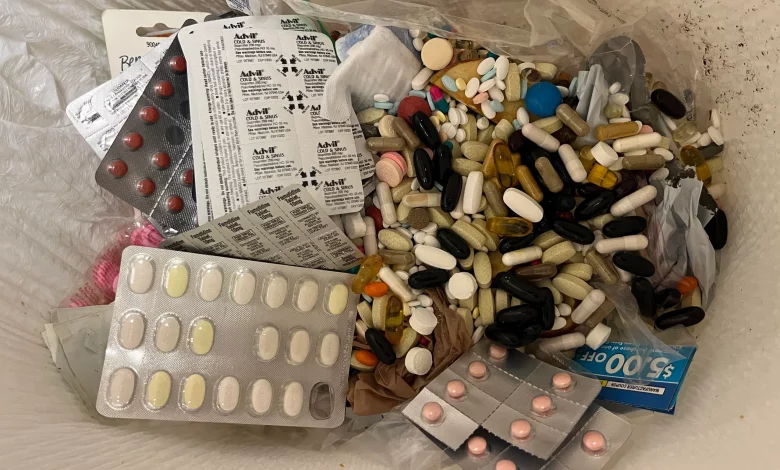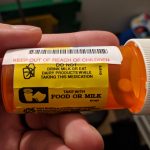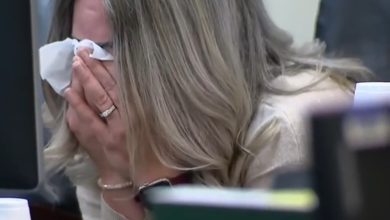The Importance of Proper Medication Storage and Disposal

Proper medication storage and disposal is an important aspect of medication safety that is often overlooked. Improper storage and disposal can lead to serious health risks, such as accidental ingestion or overdose, and environmental hazards, such as pollution of waterways and soil.
Improper storage and disposal of medication is a common problem. According to a study published in the Journal of Managed Care Pharmacy, up to 50% of patients do not store their medications properly, and up to 75% of patients do not dispose of their medications properly. Additionally, a survey conducted by the National Community Pharmacists Association found that 54% of patients had unused medications in their homes, and 35% of those patients had never disposed of them.
In this article, we will discuss the importance of proper medication storage and disposal and provide tips on how to do it safely.
The Importance of Proper Medication Storage
Proper medication storage is crucial to maintain the effectiveness of medications and prevent accidental ingestion or overdose. Here are some reasons why proper medication storage is important:
1. Maintains Medication Effectiveness: Medications are designed to be stored in specific conditions to maintain their effectiveness. For example, some medications need to be stored in a cool and dry place, while others need to be stored at room temperature. Proper storage helps to maintain the chemical stability and potency of the medication.
2. Prevents Accidental Ingestion: Medications that are not properly stored can be easily accessed by children or pets, leading to accidental ingestion. This can be dangerous, especially if the medication is a prescription drug or contains high doses of active ingredients.
3. Protects Against Theft: Proper medication storage can help protect against theft, especially if the medication is a controlled substance or highly sought after.
4. Prevents Drug Interactions: Medications should be stored separately to prevent drug interactions. For example, some medications may react with each other if they are stored together.
5. Saves Money: Proper medication storage can help prevent medication spoilage, which can lead to the need to replace medications more frequently, leading to unnecessary expenses.
Tips for Proper Medication Storage
1. Follow Label Instructions: The label on the medication bottle or packaging usually provides specific instructions on how to store the medication. It is important to follow these instructions carefully.
2. Store in a Cool, Dry Place: Most medications should be stored in a cool, dry place. Avoid storing medications in the bathroom or kitchen, as these areas are often too humid or too warm.
3. Keep Medications in Original Containers: Medications should be kept in their original containers to prevent mix-ups and ensure that the medication is not exposed to light or air.
4. Keep Medications Out of Reach of Children and Pets: Medications should be stored in a place that is inaccessible to children and pets. This may mean keeping them in a locked cabinet or a high shelf.
5. Don’t Store Medications in a Car: Medications should not be stored in a car, especially during hot weather. The extreme temperatures can cause the medication to degrade or become less effective.
The Importance of Proper Medication Disposal
Proper medication disposal is equally important as proper medication storage. Unused or expired medications should not be thrown in the trash or flushed down the toilet, as this can lead to environmental pollution and accidental ingestion. Here are some reasons why proper medication disposal is important:
1. Prevents Accidental Ingestion: Medications that are not properly disposed of can be easily accessed by children, pets, or others who may accidentally ingest them.
2. Prevents Environmental Pollution: Medications that are not properly disposed of can end up in the environment, polluting waterways and soil. This can have a negative impact on wildlife and the ecosystem.
3. Prevents Drug Abuse: Medications that are not properly disposed of can be used for non-medical purposes, leading to drug abuse.
Tips for Proper Medication Disposal
1. Follow Label Instructions: The label on the medication bottle or packaging usually provides specific instructions on how to dispose of the medication. It is important to follow these instructions carefully.
2. Don’t Flush Medications: Medications should not be flushed down the toilet or poured down the sink, as they can end up in waterways and pollute it. One common method of medication disposal is to take unused or expired medication to a drug take-back program. These programs are often run by local law enforcement agencies or pharmacies, and provide a safe and convenient way to dispose of medication.
Another option for medication disposal is to mix the medication with an undesirable substance, such as coffee grounds or kitty litter, and place it in a sealed container before disposing of it in the trash. However, it is important to check with local regulations before using this method, as some medications may need to be disposed of in a specific way.
Proper medication storage and disposal is important for the safety of individuals and the environment. By following these guidelines, individuals can help to ensure that their medication remains effective and safe to use, and that it is disposed of in a way that minimizes the risk of harm to others.
If you have questions about how to properly store or dispose of medication, talk to your healthcare provider or pharmacist. They can provide guidance on proper medication storage and disposal, as well as answer any questions you may have about your specific medications.
In conclusion, proper medication storage and disposal is essential for maintaining medication effectiveness and preventing harm. Following these tips can help ensure that medication is stored safely, children are protected from accidental ingestion, and unused medication is disposed of properly. Always consult with your healthcare provider or pharmacist if you have any questions or concerns about medication storage or disposal.





